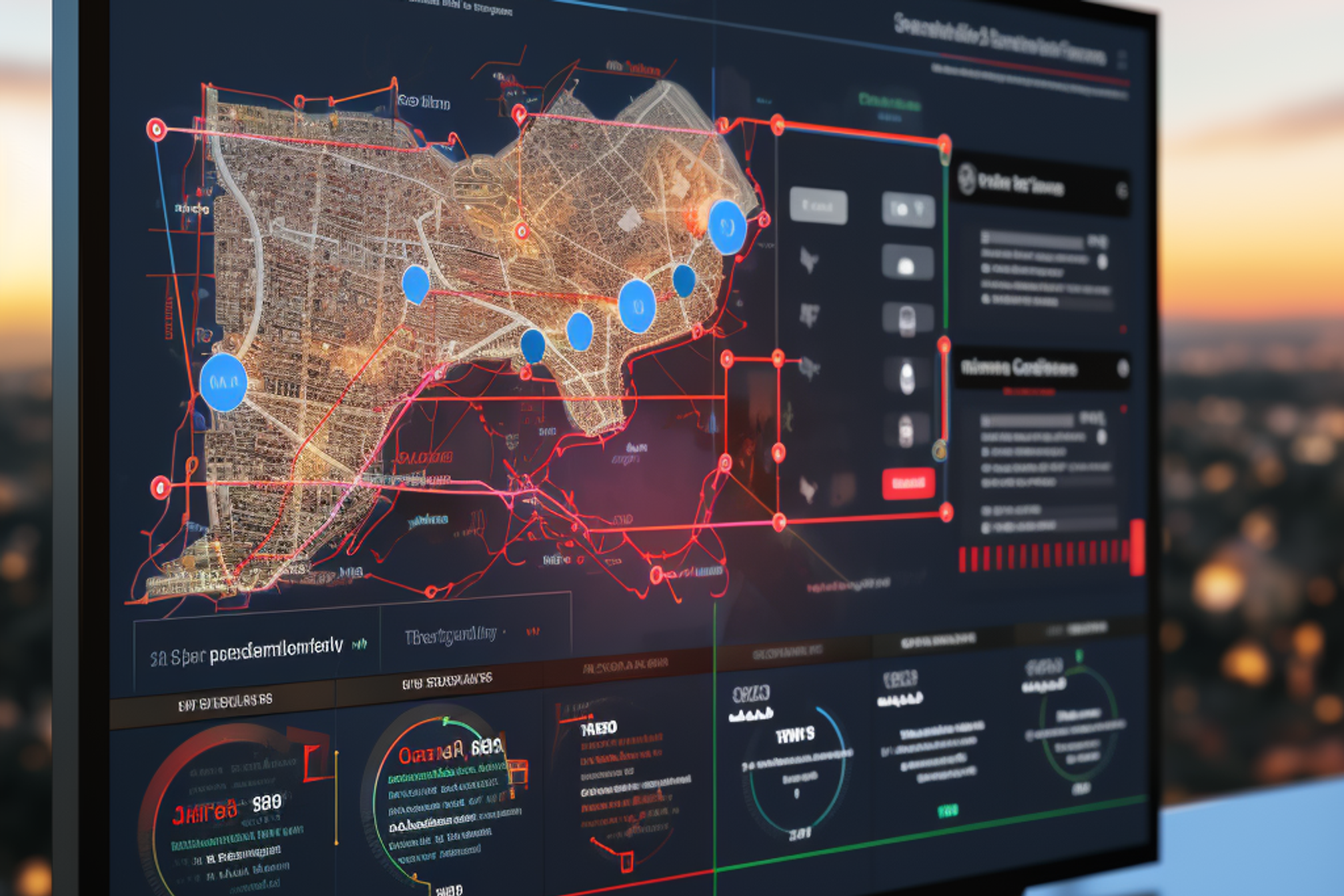Sunday, October 13, 2024
Unlock Efficiency with Transportation Scheduling Software

In today's fast-paced world, efficient transportation logistics are crucial for businesses to stay competitive. The manual management of transportation schedules can be time-consuming and error-prone, leading to delays and increased operational costs. This is where transportation scheduling software comes to the rescue. In this article, we will delve into the world of transportation scheduling software, exploring its benefits, and features, and how it's transforming the logistics industry.
Introduction
Transportation scheduling software has revolutionized the way businesses plan and manage their logistics operations. It has emerged as a powerful tool that streamlines the scheduling of shipments, routes, and resources, resulting in enhanced efficiency and cost savings.
The Need for Transportation Scheduling
Transportation is the backbone of supply chain management. Ensuring that products reach their destination on time is critical for customer satisfaction. Manual scheduling often leads to errors, missed deadlines, and unnecessary expenses. Transportation scheduling software addresses these challenges by automating the process and optimizing routes.
How Transportation Scheduling Software Works
At its core, transportation scheduling software uses advanced algorithms to calculate the most efficient routes and schedules based on various factors such as vehicle capacity, delivery windows, and traffic conditions. It takes the guesswork out of planning and minimizes the risk of human error.
Key Features of Transportation Scheduling Software
- Route Optimization: Software identifies the shortest and quickest routes, reducing fuel consumption and emissions.
- Real-Time Tracking: Allows for real-time monitoring of shipments, ensuring accurate ETAs and timely customer updates.
- Resource Allocation: Optimizes the allocation of vehicles and drivers, maximizing productivity.
- Scheduling Flexibility: Easily adapts to last-minute changes and unforeseen circumstances.
- Integration Capabilities: Seamlessly integrates with other logistics and ERP systems for a unified view of operations.
Benefits of Implementing Transportation Scheduling Software
The advantages of adopting transportation scheduling software are abundant. They include:
- Cost Reduction: Lower fuel costs, reduced overtime, and decreased maintenance expenses.
- Improved Customer Satisfaction: Consistently on-time deliveries lead to happier customers.
- Enhanced Productivity: Efficient scheduling means more deliveries in less time.
- Data-Driven Insights: Valuable data helps in making informed decisions for continuous improvement.
- Sustainability: Reduced fuel consumption contributes to a greener environment.
Case Studies: Real-World Success Stories
Let's take a look at how some companies have benefited from transportation scheduling software:
Case Study 1: NEMT Prime
By implementing transportation scheduling software, NEMT Prime reduced their delivery times by 20%, resulting in a 15% increase in customer satisfaction.
Case Study 2: Smart Transportation
Smart Transportation saved $100,000 annually on fuel costs and saw a 30% reduction in delivery errors after integrating transportation scheduling software.
Challenges and Considerations
While transportation scheduling software offers numerous advantages, it's essential to be aware of potential challenges. These may include the initial learning curve, data security concerns, and the need for regular updates and maintenance.
Future Trends in Transportation Scheduling
The future of transportation scheduling software holds exciting possibilities, including using artificial intelligence for even more precise route optimization and integrating autonomous vehicles into logistics operations.
Choosing the Right Transportation Scheduling Software
Selecting the right software is critical for success. Factors to consider include scalability, industry-specific features, and compatibility with your existing systems.
Integration with Other Logistics Solutions
The synergy between transportation scheduling software and other logistics solutions like warehouse management systems can streamline the entire supply chain.
Cost Savings and ROI
Investing in transportation scheduling software yields a substantial return on investment by reducing operational costs and increasing efficiency.
Security and Data Privacy
Protecting sensitive transportation data is paramount. Choose software providers with robust security measures and compliance with industry standards.
User-Friendly Interfaces
Intuitive interfaces ensure your team can quickly adapt to the software, maximizing its benefits.
Customer Support and Training
Reliable customer support and comprehensive training options are essential for a smooth implementation.
Conclusion
Transportation scheduling software is a game-changer for businesses seeking to optimize their logistics operations. By automating and streamlining scheduling processes, not only enhances efficiency but also leads to cost savings and improved customer satisfaction.
Are you ready to take your logistics management to the next level? Implement transportation scheduling software and experience the transformation for yourself.
FAQs
- What industries can benefit from transportation scheduling software? Transportation scheduling software is versatile and can benefit industries ranging from e-commerce to manufacturing to healthcare.
- How does transportation scheduling software handle unexpected delays? It recalculates routes and schedules in real time, adapting to changing conditions.
- Is transportation scheduling software suitable for small businesses? Yes, many software solutions cater to the needs of small businesses with scalable options.
- Can transportation scheduling software integrate with GPS tracking systems? Absolutely, integration with GPS systems enhances real-time tracking capabilities.
- What kind of training is provided when implementing transportation scheduling software? Training typically includes user guides, webinars, and hands-on support to ensure a smooth transition.
- Introduction
- The Need for Transportation Scheduling
- How Transportation Scheduling Software Works
- Key Features of Transportation Scheduling Software
- Benefits of Implementing Transportation Scheduling Software
- Case Studies: Real-World Success Stories
- Challenges and Considerations
- Future Trends in Transportation Scheduling
- Choosing the Right Transportation Scheduling Software
- Integration with Other Logistics Solutions
- Cost Savings and ROI
- Security and Data Privacy
- User-Friendly Interfaces
- Customer Support and Training
- Conclusion
- FAQs